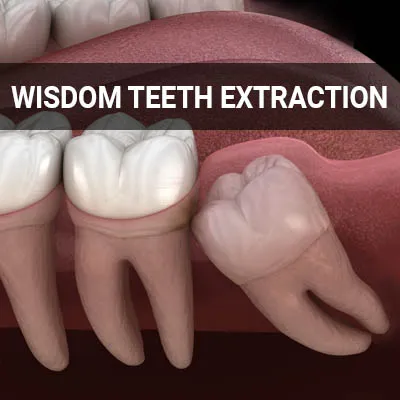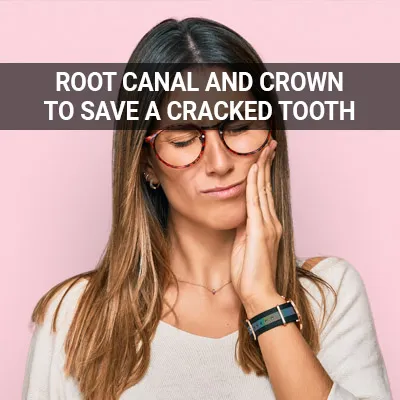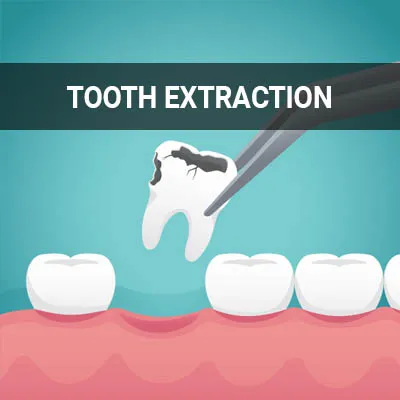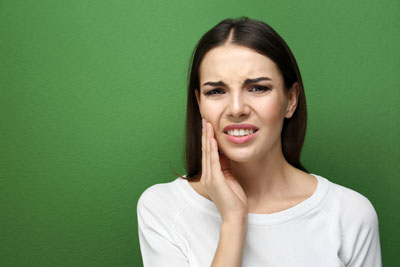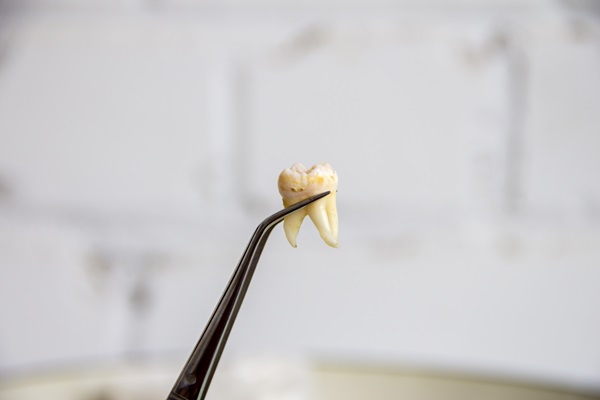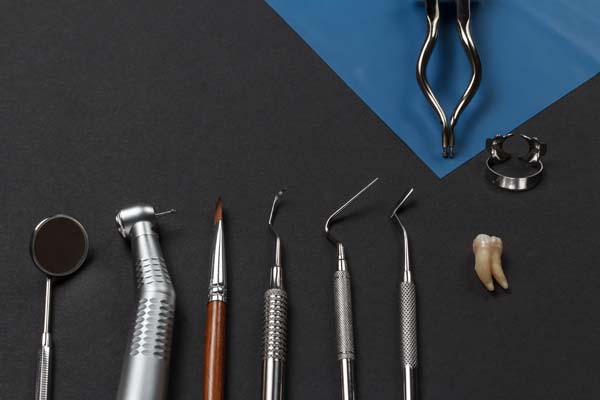When Is a Tooth Extraction Necessary Los Angeles, CA
Although it is best to preserve a natural tooth, there are times when a tooth extraction is necessary. An extraction may be the best option to maintain oral health due to trauma, disease, or crowding. Tooth extraction involves the complete removal of one or more teeth from the jaw bone.
Tooth extraction is available at Dr. Robert B Tamaki, DDS in Los Angeles and the surrounding area. Our team can extract teeth gently and safely to preserve your oral health. Call us at (310) 402-0156 to learn more about our services or schedule an appointment.
A Normal Procedure
While it is best to preserve natural teeth, many reasons can necessitate tooth extraction. Sometimes a filling or crown is not enough to restore a tooth. The American Dental Association suggests the extraction of teeth that have suffered severe trauma, have extreme tooth decay or disease, or are crowding the surrounding teeth. It is also normal for patients to have an extraction or two before orthodontic treatment.
Many tooth extractions are relatively simple and performed in-office. For teeth that are visible about the gum line, we will numb the extraction site and remove the tooth with forceps. Broken or impacted teeth require a more involved procedure.
“The American Dental Association suggests the extraction of teeth that have suffered severe trauma, have extreme tooth decay or disease, or are crowding the surrounding teeth.”
Preventing Infection
According to the National Institute of Dental and Craniofacial Research, gum disease is the most common cause of tooth loss in adults. Gum disease occurs when bacteria get below the gum line and causes infections. Without treatment, oral bacterial leads to gum recession, damage to the jawbone, loose teeth, and even tooth loss.
Research has also shown chronic dental infections can cause inflammation that contributes to cardiovascular disease, stroke, and many other related diseases. While a root canal can often save a tooth from decay, sometimes a tooth is beyond saving due to lost structure and stability. Tooth extraction can prevent damaging decay and infection from spreading.
“Tooth extraction can prevent damaging decay and infection from spreading.”
Overcrowded or Impacted Teeth
In some cases, it is beneficial to have crowded or impacted teeth extracted. Impacted wisdom teeth do not have enough room to grow. Extraction can prevent pain, infection, and other dental problems. While not all wisdom teeth need removal, it is necessary once they start causing problems. In some cases, wisdom teeth do not fully break through the gums and can cause crowding issues. A partially erupted wisdom tooth is especially susceptible to cavities.
Patients may also need teeth extracted before receiving braces. Orthodontics involves the process of properly aligning the teeth, which may be tough without enough room. Crowded teeth increase a patient's risk of developing gum disease and cavities. Extracting teeth can relieve crowding and impacted teeth.
“Extraction can prevent pain, infection, and other dental problems.”
Check out what others are saying about our dental services on Yelp: When Is a Tooth Extraction Necessary in Los Angeles, CA
When Tooth Restorations Are Not Enough
Thanks to modern-day advances in dental technology, there are several tooth restoration treatments available that a patient may be able to try before having to turn to tooth extraction. In most cases, time is of the essence, and patients who can come in to see Dr. Robert B Tamaki, DDS soon enough have higher chances of saving their teeth. However, teeth that are severely decayed are usually beyond repair, and gums that are severely infected are generally unable to support the teeth.
Adult teeth are meant to be permanent and can withstand tremendous wear and tear. Still, this does not make them strong enough to endure countless repairs. Each treatment and retreatment wears away at the natural tooth until there is little left to save. At a certain point, the patient will only experience more dental health problems by maintaining their natural tooth, and a tooth extraction becomes the most viable option.
“…teeth that are severely decayed are usually beyond repair, and gums that are severely infected are generally unable to support the teeth.”
Questions Answered on This Page
Q. Why would a tooth need to be extracted?
Q. Why is stopping infection from spreading important?
Q. Why do I need my wisdom teeth or other teeth removed?
Q. What sorts of trauma can necessitate tooth extraction?
Q. When are tooth restorations not enough to save a tooth?
People Also Ask
Q. How will my doctor help me prepare for my tooth extraction?
Q. When should one seek emergency dental care?
Q. What are the risks of untreated dental pain?
Q. What is cracked tooth syndrome?
Q. What can a dentist do to fix my chipped tooth?
Q. What is a partial removable denture for one missing tooth?
Trauma and Tooth Extraction
Teeth are tough but not indestructible. Traumatic dental injuries can occur from a sports injury, car accident, or even a simple slip and fall. While many injuries are minor, if the tooth becomes severely damaged to the point where restoration is not possible, an extraction will be necessary.
After sustaining tooth trauma, patients should schedule an appointment quickly to improve their outcomes. Our team can look for signs of additional damage that may not be immediately obvious. Severely fractured teeth can be very loose and unable to be restored with dental work, thus making tooth extraction necessary. Patients should take any dental trauma seriously, even if it seems mild.
“While many injuries are minor, if the tooth becomes severely damaged to the point where restoration is not possible, an extraction will be necessary.”
Frequently Asked Questions
Q. Do tooth extractions hurt?
A. In most cases, the patient will receive general or local anesthesia to keep them comfortable during the procedure. Some teeth that require extraction have even lost some of their nerve signals. We will do everything in our power to keep your safety and comfort at the forefront of everything we do.
Q. What should I tell my dentist before my tooth extraction?
A. Tooth extraction is generally a safe procedure, but there is a small risk of harmful bacteria entering the bloodstream. It also puts gum tissue at a small risk of infection. As such, patients with any conditions that put them at high risk for developing a severe infection may need to take antibiotics before and after the extraction. Make sure to let Dr. Robert B Tamaki, DDS know your complete medical history and any medications and supplements you are currently taking. It is also essential to let us know if you have congenital heart defects, artificial joints, damaged or man-made heart valves, impaired immune system, liver disease, or a history of bacterial endocarditis.
Q. When should I call the dentist after my tooth extraction?
A. Some swelling and residual bleeding 24 hours after a tooth extraction are normal and to be expected. However, you should call us immediately if you are experiencing severe pain and bleeding for more than four hours after the tooth extraction. You should also let us know if you are experiencing any signs of infection (such as fever and chills), nausea and vomiting, cough, shortness of breath, redness, swelling, chest pain, or excessive discharge from the treated area.
Q. What is it like to recover from a tooth extraction?
A. It usually takes a few days to recover from a tooth extraction. Some minor pain and discomfort are not unusual, and they can generally be controlled with over-the-counter medications. Eating soft foods, refraining from tobacco use, and applying an ice pack can also help.
Q. What happens after a tooth extraction?
A. We may prescribe you painkillers to prevent infection. Take these as directed. Do not rinse or spit forcefully for 24 hours after the extraction, lest you dislodge the clot forming in the socket. Remember to follow any other direction we provide you.
Dental Terminology
Call Us Today
When necessary, tooth extraction can relieve pain and give you have a more functional smile. Our team at Dr. Robert B Tamaki, DDS can help determine whether you are a good candidate for this procedure. Call us at 310-402-0156 to learn more about our services or schedule an appointment.
Helpful Related Links
- American Dental Association (ADA). Glossary of Dental Clinical Terms. 2024
- American Academy of Cosmetic Dentistry® (AACD). Home Page. 2024
- WebMD. WebMD’s Oral Care Guide. 2024
About our business, license, and website security
- Dr. Robert B Tamaki, DDS was established in 1985.
- We accept the following payment methods: Cash, CareCredit, Check, MasterCard, and Visa
- We serve patients from the following counties: Los Angeles County
- We serve patients from the following cities: Los Angeles, Santa Monica, Venice, Marina Del Rey, Redondo Beach, Hermosa Beach, Manhattan Beach, and Westchester
- CA (License #DDO-33386). View License Information and Specifics
- National Provider Identifier Database (1568559011). View NPI Registry Information
- Healthgrades. View Background Information and Reviews
- Norton Safe Web. View Details
- Trend Micro Site Safety Center. View Details
Back to top of When Is a Tooth Extraction Necessary



